Across America’s cities, crime is rising – but it’s an inconsistent and strange picture.
While some cities are seeing only modest increases in murder rates, “quality of life”
crimes – from “smash and grab” robberies to auto theft and property damage are consistently
exploding. It brings to mind the work of social scientists, James Q. Wilson and George
Kelling, best known by the phrase, “broken windows theory”. Looking at the growing
crime rates in American cities back in the 1970s, Wilson and Kelling concluded that
the reduction in enforcement of lower level property crimes created a foundation of
lawlessness that enabled higher degrees of felony.
In recent years, with growing suspicion of police behavior in a number of America's
communities, the work of Wilson and Kelling has come under increasing attack, resulting
in a variety of new laws reducing punishments for property crimes. But with these
increasing crime rates, is it time to revisit the “broken windows theory” and our
response to crime?
Through an afternoon of panels and keynotes, policy experts and policymakers will
discuss and debate the relevance of Wilson's and Kelling's theory to today's public
safety challenges. As a graduate school, that served as James Q. Wilson's "academic
home" from 1999 to 2012, the Pepperdine School of Public Policy is committed to regularly
exploring the impact of his work on today's public policy issues.
Naomi Harlin Goodno
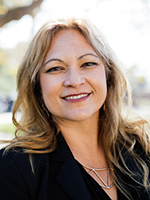 After focusing on history and teaching as an undergraduate at Princeton University,
Goodno attended Berkeley Law, University of California for the first two years and
spent her third year studying at Harvard Law School. While at Berkeley, Goodno served
as an articles editor for the California Law Review. At Harvard, she was an active member of the Mediation Program. She also interned
at the US Attorney's Office, Northern District of California, and the Alameda District
Attorney's Office.
After focusing on history and teaching as an undergraduate at Princeton University,
Goodno attended Berkeley Law, University of California for the first two years and
spent her third year studying at Harvard Law School. While at Berkeley, Goodno served
as an articles editor for the California Law Review. At Harvard, she was an active member of the Mediation Program. She also interned
at the US Attorney's Office, Northern District of California, and the Alameda District
Attorney's Office.
After law school, Goodno joined the downtown Los Angeles firm of Quinn, Emanuel, Urquhart
& Sullivan, where she litigated numerous complex civil litigation cases, including
white-collar crime, class actions, bankruptcy, breach of contract, fraud, and property
and employment disputes. She then clerked for the Honorable Arthur L. Alarcon of the
US Court of Appeals for the Ninth Circuit.
Goodno served five years in the Deans’ Suite, acting as the academic dean, dean of
students, and vice dean. Goodno teaches civil procedure, evidence, trial practice,
human rights and international criminal law, and advanced criminal procedure. Her
research interests focus on justice for children and the vulnerable which include
the intersection of cyberspace, law and technology, criminal law, evidence, constitutional
law, and global justice. She is also active in working with international human rights
organizations.
Rafael Mangual
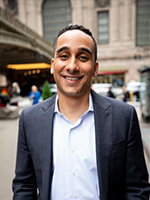
Rafael Mangual is a fellow & head of research for the Policing and Public Safety Initiative
at the Manhattan Institute, and author of Criminal (In)Justice
An expert on criminal justice and public safety, Mangual is the Nick Ohnell Fellow
and head of research for the Policing and Public Safety Initiative at the Manhattan
Institute for Policy Research, and a contributing editor of the Institute’s flagship
publication, City Journal. His first book, Criminal (In)Justice: What the push for decarceration and depolicing gets wrong and
who it hurts most, was published in July of 2022 by Center Street, an imprint of Hachette Book Group.
In 2022, Rafael was elected to the Council on Criminal Justice, and in 2020 he was
appointed to serve a four-year term on the New York State Advisory Committee of the
U.S. Commission on Civil Rights.
Rafael regularly appears on both national and local television and radio to comment
on issues of crime, justice, and safety. His writing on these issues has been featured
in a wide array of publications, including The New York Times, The Wall Street Journal, and The Washington Post.
His expertise is regularly sought by policymaking bodies, including committees of
both the US House of Representatives and US Senate, before which Rafael has testified
on multiple occasions.
John McKinney
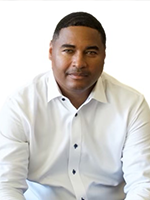 John McKinney’s journey from Passaic, New Jersey, a gritty, high-crime, working-class
city, to the upper echelons of the legal profession is nothing short of remarkable.
Tragically orphaned by age five, John was brought up by his indomitable sister, who
suddenly became responsible for rearing five children on her own. During the tumultuous
1980s crack cocaine epidemic, many of John’s teenaged contemporaries were ensnared
by addiction or crime. Yet, John’s innate resilience, fortified by his sister’s values,
steered him clear of these pitfalls.
John McKinney’s journey from Passaic, New Jersey, a gritty, high-crime, working-class
city, to the upper echelons of the legal profession is nothing short of remarkable.
Tragically orphaned by age five, John was brought up by his indomitable sister, who
suddenly became responsible for rearing five children on her own. During the tumultuous
1980s crack cocaine epidemic, many of John’s teenaged contemporaries were ensnared
by addiction or crime. Yet, John’s innate resilience, fortified by his sister’s values,
steered him clear of these pitfalls.
Recognizing that education would be his bridge to a successful life, John exhibited
extraordinary dedication by juggling full-time college with a grueling 50-hour work
week. John’s relentless work ethic saw him graduate from Rutgers University in a commendable
four years. Not one to rest on his laurels, John traversed three thousand miles to
pursue his passion for justice at the UCLA School of Law, adding another major accomplishment
to his profile by graduating in 1997.
1998 marked the beginning of John’s illustrious tenure with the LA County District
Attorney’s Office. Over a span of 25 impactful years, John’s exceptional talent and
brilliance shone. From prosecuting murder cases in the Hardcore Gangs Division to
being a leader in the elite Major Crimes Division for over a decade, John masterfully
handled some of California’s most complex and high-stakes cases.
Most recently John tried the case of Eric Holder Jr. for the first-degree murder of
rapper and entrepreneur Nipsey Hussle.
Today, John serves as the deputy-in-charge of the East Los Angeles District Attorney’s
Office, a beacon of hard work, talent, and unwavering commitment to justice.
Peter Moskos
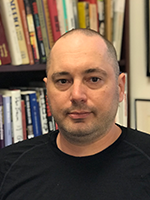 Professor Peter Moskos is a professor in the Department of Law, Police Science, and
Criminal Justice Administration at John Jay College of Criminal Justice in New York
City. Moskos, a Princeton and Harvard-trained sociologist, is the director of John
Jay College’s NYPD Executive Master’s Leadership Program and a former Baltimore City
Police Officer.
Professor Peter Moskos is a professor in the Department of Law, Police Science, and
Criminal Justice Administration at John Jay College of Criminal Justice in New York
City. Moskos, a Princeton and Harvard-trained sociologist, is the director of John
Jay College’s NYPD Executive Master’s Leadership Program and a former Baltimore City
Police Officer.
In addition to his primary position at John Jay College, Moskos is a faculty member
in CUNY’s doctoral program in sociology, has taught introductory criminal justice
classes at LaGuardia Community College in Queens, and is a senior fellow of the Yale
Urban Ethnography Project. He is the founder of the Violence Reduction Project.
Moskos studies people the old-fashioned way: He talks to them. Moskos’s first three
books — Cop in the Hood, In Defense of Flogging, and Greek Americans — have won high praise and earned him recognition as one of Atlantic Magazine’s “Brave Thinkers” of the year. He has also published in the Washington Post, Washington
Monthly, the New York Times, CNN, Macleans, Pacific Standard, Slate, The Chronicle of Higher Education, and his “Quality Policing” podcast and blog. Moskos’s next book is about the “New
York City Miracle,” the great 1990s crime drop, told from the perspective of police
officers who were on the job.
Pete Peterson
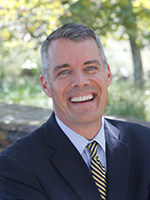 Pete Peterson is the dean (Braun Family Dean’s Chair) of Pepperdine’s School of Public
Policy, and a leading national speaker and writer on issues related to civic participation,
and the use of technology to make government more responsive and transparent. He was
the first executive director of the Davenport Institute for Public Engagement and
Civic Leadership and continues to lead public sector training programs for the Institute.
He has co-created and currently co-facilitates the training seminar, "Public Engagement:
The Vital Leadership Skill in Difficult Times" a program that has been attended by
over 4,000 municipal officials, and he also co-created and co-facilitates the certificate
program, "Leading Smart Communities: Creating a Better Future through Emerging Technologies”.
He serves on the Leadership Council of California Forward, the Healthy Democracies
Advisory Council organized by Public Agenda, and chairs the governance committee for
the Public Interest Technology-University Network. Peterson was the Republican candidate
for California Secretary of State in 2014.
Pete Peterson is the dean (Braun Family Dean’s Chair) of Pepperdine’s School of Public
Policy, and a leading national speaker and writer on issues related to civic participation,
and the use of technology to make government more responsive and transparent. He was
the first executive director of the Davenport Institute for Public Engagement and
Civic Leadership and continues to lead public sector training programs for the Institute.
He has co-created and currently co-facilitates the training seminar, "Public Engagement:
The Vital Leadership Skill in Difficult Times" a program that has been attended by
over 4,000 municipal officials, and he also co-created and co-facilitates the certificate
program, "Leading Smart Communities: Creating a Better Future through Emerging Technologies”.
He serves on the Leadership Council of California Forward, the Healthy Democracies
Advisory Council organized by Public Agenda, and chairs the governance committee for
the Public Interest Technology-University Network. Peterson was the Republican candidate
for California Secretary of State in 2014.
Matt Ross
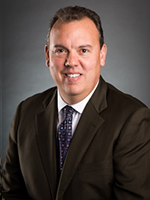 Matt Ross is the principal of Ross & Associates and has over two decades of experience
in communications strategy, media relations, political campaigns, crisis management,
and government. He brings a unique approach to changing public perception by forming
partnerships with non-traditional alliances, whether it be for large-scale infrastructure
projects or local campaigns. His clients include the Tule River Tribe, California
Biomass Energy Alliance, Berry Corporation, Middle River Power, and Californians Against
Retail and Residential Theft.
Matt Ross is the principal of Ross & Associates and has over two decades of experience
in communications strategy, media relations, political campaigns, crisis management,
and government. He brings a unique approach to changing public perception by forming
partnerships with non-traditional alliances, whether it be for large-scale infrastructure
projects or local campaigns. His clients include the Tule River Tribe, California
Biomass Energy Alliance, Berry Corporation, Middle River Power, and Californians Against
Retail and Residential Theft.
Furthermore, Ross has provided advice for various state and local campaigns such as
Scott Jones for Sacramento County Sheriff, Roger Niello for State Senate, Gregg Fishman
for SMUD Board, and Thien Ho for District Attorney.
Before establishing his own firm, Ross served as Vice President of a prominent international
public relations firm where he was responsible for overseeing some of the largest
public affairs clients including Walmart, Yocha De-He Tribe, the Orange County Toll
Road Project, and several Chevron Corporation projects. In this role, Ross managed
day-to-day operations while developing innovative approaches to alter public perception
through collaborations with non-traditional partners like specific trade unions and
environmental groups.
Ross served the California State Legislature as communications and public affairs
director for the Senate Caucus for four Republican leaders. In that capacity, he managed
the Caucus’ overall communications plan, messaging, websites, television and radio
studios. Ross was also in contact on a daily basis with reporters focusing on business,
government, and political issues.
Ross contributed to Capitol Weekly’s Expert Expound column. His opinion editorials
and letters to the editor on behalf of others have appeared in the Bakersfield Californian, Capitol Weekly, Contra Costa Times, Fresno Bee, Los Angeles Daily News, Los Angeles Times, Modesto Bee, Oakland Tribune, Orange County Register, Riverside Press-Enterprise, Sacramento Bee, San Francisco Chronicle, San Jose Mercury News, San Diego Union-Tribune, and USA Today.
Prior to joining the Legislature, Ross served as the successful campaign manager for
Proposition 21, the Juvenile Crime Preventions and Gang Initiative of 2000. He also
worked in the Attorney General’s Office as chief deputy press secretary, covering
a variety of state issues from consumer law to crime to environmental protection.
He previously worked in Governor Deukmejian’s Administration and served on Governor
Schwarzenegger’s transition team.
Steven Teles
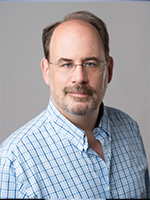 Steven Teles is a professor of political science at Johns Hopkins University. Teles
co-authored The Captured Economy with Niskanen senior vice president Brink Lindsey. The book, published by Oxford University
Press in 2017, investigates the role of rent-seeking in the growth of inequality.
Teles is also the author of (with Rob Saldin) Never Trump: The Revolt of the Conservative Elites (Oxford, 2020); (with David Dagan) Prison Break: Why Conservatives Turned Against Mass Incarceration (Oxford, 2016); The Rise of the Conservative Legal Movement: The Battle for Control of the Law (Princeton, 2008); and Whose Welfare: AFDC and Elite Politics (Kansas, 1996). He is the editor (with Brian Glenn) of Conservatism and American Political Development (Oxford, 2009) and (with Glenn Loury and Tariq Modood) Ethnicity, Social Mobility and Public Policy: Comparing the US and UK (Cambridge, 2005).
Steven Teles is a professor of political science at Johns Hopkins University. Teles
co-authored The Captured Economy with Niskanen senior vice president Brink Lindsey. The book, published by Oxford University
Press in 2017, investigates the role of rent-seeking in the growth of inequality.
Teles is also the author of (with Rob Saldin) Never Trump: The Revolt of the Conservative Elites (Oxford, 2020); (with David Dagan) Prison Break: Why Conservatives Turned Against Mass Incarceration (Oxford, 2016); The Rise of the Conservative Legal Movement: The Battle for Control of the Law (Princeton, 2008); and Whose Welfare: AFDC and Elite Politics (Kansas, 1996). He is the editor (with Brian Glenn) of Conservatism and American Political Development (Oxford, 2009) and (with Glenn Loury and Tariq Modood) Ethnicity, Social Mobility and Public Policy: Comparing the US and UK (Cambridge, 2005).
His work has been featured in a number of outlets, including National Affairs, The Public Interest, Democracy Journal, The American Prospect, The Nation, Washington Monthly (where he is a member of the Editorial Advisory Board), The American Interest, and The New Statesman. At Niskanen, Teles provides intellectual input into the full range of the Center’s
research.
David Thacher
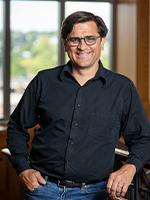 David Thacher is associate professor of public policy and urban planning at the University
of Michigan at the Gerald R. Ford School of Public Policy. His research draws from
philosophy, history, and the interpretive social sciences to develop and apply a humanistic
approach to policy research. Most of his work has focused on policing, including studies
of police order maintenance, the role of knowledge in police innovation, and the transformation
of police authority in 19th and 20th century America. He is currently studying the
police response to people with psychiatric and cognitive disabilities.
David Thacher is associate professor of public policy and urban planning at the University
of Michigan at the Gerald R. Ford School of Public Policy. His research draws from
philosophy, history, and the interpretive social sciences to develop and apply a humanistic
approach to policy research. Most of his work has focused on policing, including studies
of police order maintenance, the role of knowledge in police innovation, and the transformation
of police authority in 19th and 20th century America. He is currently studying the
police response to people with psychiatric and cognitive disabilities.
Thacher received his PhD from the Massachusetts Institute of Technology.
Kurt Wilson
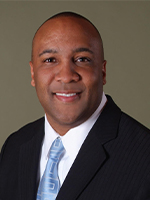 Kurt Wilson is the executive director of the Western Riverside Council of Governments.
For more than 25 years Wilson has chartered new courses in the public sector, proving
an ability to inspire, design, and lead steady transformation. His make-a-difference
leadership has been instrumental during critical periods that required deep evaluation
and strategic planning from a fresh perspective. He made history when he led the City
of Stockton, California through a bankruptcy filing and escorted its evolution into
the second most financially healthy large city in America—earning 3 All-American City
Awards and being partially documented in a Harvard Kennedy School case study. He attended
Northeastern University in Boston where he earned a Doctor of Law & Policy. He also
holds an MBA, Management and Leadership and a Master’s in Education, Administration
and Leadership. He currently serves on the Davenport Institute Advisory Council.
Kurt Wilson is the executive director of the Western Riverside Council of Governments.
For more than 25 years Wilson has chartered new courses in the public sector, proving
an ability to inspire, design, and lead steady transformation. His make-a-difference
leadership has been instrumental during critical periods that required deep evaluation
and strategic planning from a fresh perspective. He made history when he led the City
of Stockton, California through a bankruptcy filing and escorted its evolution into
the second most financially healthy large city in America—earning 3 All-American City
Awards and being partially documented in a Harvard Kennedy School case study. He attended
Northeastern University in Boston where he earned a Doctor of Law & Policy. He also
holds an MBA, Management and Leadership and a Master’s in Education, Administration
and Leadership. He currently serves on the Davenport Institute Advisory Council.
John Wood Jr.
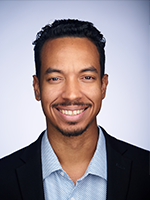 John Wood Jr. is a leading figure in the civic renewal movement. He is a national
ambassador for Braver Angels, the United States' largest grassroots, bipartisan organization
dedicated to political depolarization. A nationally recognized public speaker on the
subjects of political and racial reconciliation, Wood has spoken across America to
a wide range of the nation’s most respected think tanks, universities, corporations,
philanthropic organizations, and political associations including the Aspen Institute,
the Manhattan Institute, CPAC 2019, Global Philanthropy Forum, the Philanthropy Roundtable,
Upswell, Target, General Mills, LucasFilm, Oregon League of Cities, Institute for
Local Government, and campus audiences including Pepperdine, Duke University, USC,
Purdue, UC Berkeley and many others. An opinion columnist for USA Today, Wood’s written work has appeared in publications including The Wall Street Journal, The Washington Examiner, Quillette Magazine, Areo Magazine, Reflections (A Journal of the Yale School of Divinity), Real Clear Politics, Persuasion Magazine, The American Interest and many others. Wood is a cohost of the Braver Angels Podcast and host of the upcoming
podcast Uniting America with John Wood Jr.
John Wood Jr. is a leading figure in the civic renewal movement. He is a national
ambassador for Braver Angels, the United States' largest grassroots, bipartisan organization
dedicated to political depolarization. A nationally recognized public speaker on the
subjects of political and racial reconciliation, Wood has spoken across America to
a wide range of the nation’s most respected think tanks, universities, corporations,
philanthropic organizations, and political associations including the Aspen Institute,
the Manhattan Institute, CPAC 2019, Global Philanthropy Forum, the Philanthropy Roundtable,
Upswell, Target, General Mills, LucasFilm, Oregon League of Cities, Institute for
Local Government, and campus audiences including Pepperdine, Duke University, USC,
Purdue, UC Berkeley and many others. An opinion columnist for USA Today, Wood’s written work has appeared in publications including The Wall Street Journal, The Washington Examiner, Quillette Magazine, Areo Magazine, Reflections (A Journal of the Yale School of Divinity), Real Clear Politics, Persuasion Magazine, The American Interest and many others. Wood is a cohost of the Braver Angels Podcast and host of the upcoming
podcast Uniting America with John Wood Jr.
Prior to his work with Braver Angels, Wood was the state of California’s youngest
active nominee for Congress in the 2014 election cycle, challenging Maxine Waters
in California’s 43rd district. His unifying campaign was covered by outlets including
The National Review and The Larry Elder Show. After the election Wood was elected as 2nd Vice-Chairman
of the Republican Party of Los Angeles, the largest Republican county party in America.
In addition to his work with Braver Angels, Wood serves as an advisor to The American
Project (an initiative of the Pepperdine School of Public Policy dedicated to restoring
the communitarian roots of conservatism), the Foundation Against Intolerance and Racism,
the 1776 Unites Project, is a member of the Progress Network (an initiative of the
New America Foundation) and is a field-builder with the New Pluralists Collaborative
(a coalitional group focused on connecting and supporting organizations committed
to depolarization and social justice). Wood has worked in support of educational opportunities
for at risk youth in inner-city Los Angeles in the areas of tutoring and private education.
He sits on the board of directors for Strive Arts and Academics, a celebrated private
educational facility in South Los Angeles.
Wood was raised in a musical family. His father is noted Jazz Pianist John Wood, and
his mother the popular Los Angeles-based R&B singer Deonda Theus. Wood’s grandfather
was record industry pioneer Randy Wood, of Dot Records and Randy’s Record Shop fame.
He lives in Los Angeles with his wife and three children.
Shelley Zimmerman
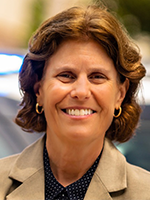 Shelley Zimmerman served 35 years with the San Diego Police Department, retiring as
the chief of police. She believes in community policing and that public safety must
be a shared responsibility with everyone playing a crucial role in keeping their communities
safe. During her tenure as chief of police, San Diego‘s overall crime fell to its
lowest level in 49 years. She instituted new policies and deployed new equipment such
as body worn cameras (the largest city at the time to do so).
Shelley Zimmerman served 35 years with the San Diego Police Department, retiring as
the chief of police. She believes in community policing and that public safety must
be a shared responsibility with everyone playing a crucial role in keeping their communities
safe. During her tenure as chief of police, San Diego‘s overall crime fell to its
lowest level in 49 years. She instituted new policies and deployed new equipment such
as body worn cameras (the largest city at the time to do so).
She speaks across the country on the myriad of challenges and opportunities policing
brings in the 21st Century. She emphasizes the importance of officer health, safety,
and wellness which is essential to help protect all those who serve.
Born in Cleveland, Ohio, Zimmerman is a graduate of the Ohio State University and
the FBI National Academy. She is an avid sports fan and often participates in athletic
charity fundraisers.
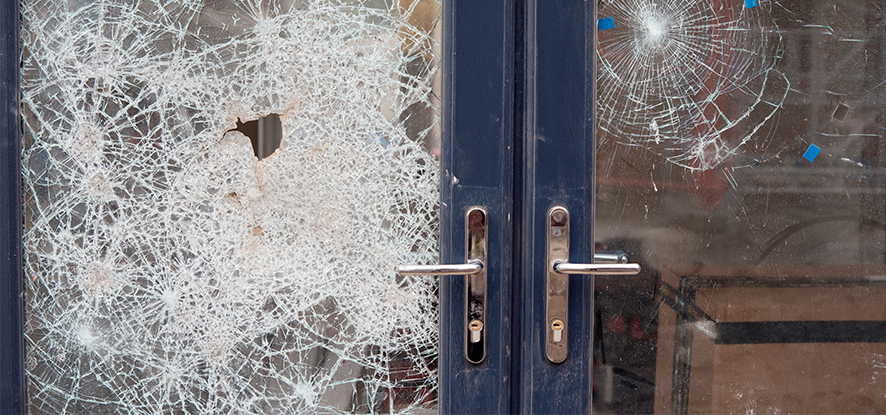

 After focusing on history and teaching as an undergraduate at Princeton University,
Goodno attended Berkeley Law, University of California for the first two years and
spent her third year studying at Harvard Law School. While at Berkeley, Goodno served
as an articles editor for the California Law Review. At Harvard, she was an active member of the Mediation Program. She also interned
at the US Attorney's Office, Northern District of California, and the Alameda District
Attorney's Office.
After focusing on history and teaching as an undergraduate at Princeton University,
Goodno attended Berkeley Law, University of California for the first two years and
spent her third year studying at Harvard Law School. While at Berkeley, Goodno served
as an articles editor for the California Law Review. At Harvard, she was an active member of the Mediation Program. She also interned
at the US Attorney's Office, Northern District of California, and the Alameda District
Attorney's Office.
 John McKinney’s journey from Passaic, New Jersey, a gritty, high-crime, working-class
city, to the upper echelons of the legal profession is nothing short of remarkable.
Tragically orphaned by age five, John was brought up by his indomitable sister, who
suddenly became responsible for rearing five children on her own. During the tumultuous
1980s crack cocaine epidemic, many of John’s teenaged contemporaries were ensnared
by addiction or crime. Yet, John’s innate resilience, fortified by his sister’s values,
steered him clear of these pitfalls.
John McKinney’s journey from Passaic, New Jersey, a gritty, high-crime, working-class
city, to the upper echelons of the legal profession is nothing short of remarkable.
Tragically orphaned by age five, John was brought up by his indomitable sister, who
suddenly became responsible for rearing five children on her own. During the tumultuous
1980s crack cocaine epidemic, many of John’s teenaged contemporaries were ensnared
by addiction or crime. Yet, John’s innate resilience, fortified by his sister’s values,
steered him clear of these pitfalls. Professor Peter Moskos is a professor in the Department of Law, Police Science, and
Criminal Justice Administration at John Jay College of Criminal Justice in New York
City. Moskos, a Princeton and Harvard-trained sociologist, is the director of John
Jay College’s NYPD Executive Master’s Leadership Program and a former Baltimore City
Police Officer.
Professor Peter Moskos is a professor in the Department of Law, Police Science, and
Criminal Justice Administration at John Jay College of Criminal Justice in New York
City. Moskos, a Princeton and Harvard-trained sociologist, is the director of John
Jay College’s NYPD Executive Master’s Leadership Program and a former Baltimore City
Police Officer. Pete Peterson is the dean (Braun Family Dean’s Chair) of Pepperdine’s School of Public
Policy, and a leading national speaker and writer on issues related to civic participation,
and the use of technology to make government more responsive and transparent. He was
the first executive director of the Davenport Institute for Public Engagement and
Civic Leadership and continues to lead public sector training programs for the Institute.
He has co-created and currently co-facilitates the training seminar, "Public Engagement:
The Vital Leadership Skill in Difficult Times" a program that has been attended by
over 4,000 municipal officials, and he also co-created and co-facilitates the certificate
program, "Leading Smart Communities: Creating a Better Future through Emerging Technologies”.
He serves on the Leadership Council of California Forward, the Healthy Democracies
Advisory Council organized by Public Agenda, and chairs the governance committee for
the Public Interest Technology-University Network. Peterson was the Republican candidate
for California Secretary of State in 2014.
Pete Peterson is the dean (Braun Family Dean’s Chair) of Pepperdine’s School of Public
Policy, and a leading national speaker and writer on issues related to civic participation,
and the use of technology to make government more responsive and transparent. He was
the first executive director of the Davenport Institute for Public Engagement and
Civic Leadership and continues to lead public sector training programs for the Institute.
He has co-created and currently co-facilitates the training seminar, "Public Engagement:
The Vital Leadership Skill in Difficult Times" a program that has been attended by
over 4,000 municipal officials, and he also co-created and co-facilitates the certificate
program, "Leading Smart Communities: Creating a Better Future through Emerging Technologies”.
He serves on the Leadership Council of California Forward, the Healthy Democracies
Advisory Council organized by Public Agenda, and chairs the governance committee for
the Public Interest Technology-University Network. Peterson was the Republican candidate
for California Secretary of State in 2014. Matt Ross is the principal of Ross & Associates and has over two decades of experience
in communications strategy, media relations, political campaigns, crisis management,
and government. He brings a unique approach to changing public perception by forming
partnerships with non-traditional alliances, whether it be for large-scale infrastructure
projects or local campaigns. His clients include the Tule River Tribe, California
Biomass Energy Alliance, Berry Corporation, Middle River Power, and Californians Against
Retail and Residential Theft.
Matt Ross is the principal of Ross & Associates and has over two decades of experience
in communications strategy, media relations, political campaigns, crisis management,
and government. He brings a unique approach to changing public perception by forming
partnerships with non-traditional alliances, whether it be for large-scale infrastructure
projects or local campaigns. His clients include the Tule River Tribe, California
Biomass Energy Alliance, Berry Corporation, Middle River Power, and Californians Against
Retail and Residential Theft.  Steven Teles is a professor of political science at Johns Hopkins University. Teles
co-authored The Captured Economy with Niskanen senior vice president Brink Lindsey. The book, published by Oxford University
Press in 2017, investigates the role of rent-seeking in the growth of inequality.
Teles is also the author of (with Rob Saldin) Never Trump: The Revolt of the Conservative Elites (Oxford, 2020); (with David Dagan) Prison Break: Why Conservatives Turned Against Mass Incarceration (Oxford, 2016); The Rise of the Conservative Legal Movement: The Battle for Control of the Law (Princeton, 2008); and Whose Welfare: AFDC and Elite Politics (Kansas, 1996). He is the editor (with Brian Glenn) of Conservatism and American Political Development (Oxford, 2009) and (with Glenn Loury and Tariq Modood) Ethnicity, Social Mobility and Public Policy: Comparing the US and UK (Cambridge, 2005).
Steven Teles is a professor of political science at Johns Hopkins University. Teles
co-authored The Captured Economy with Niskanen senior vice president Brink Lindsey. The book, published by Oxford University
Press in 2017, investigates the role of rent-seeking in the growth of inequality.
Teles is also the author of (with Rob Saldin) Never Trump: The Revolt of the Conservative Elites (Oxford, 2020); (with David Dagan) Prison Break: Why Conservatives Turned Against Mass Incarceration (Oxford, 2016); The Rise of the Conservative Legal Movement: The Battle for Control of the Law (Princeton, 2008); and Whose Welfare: AFDC and Elite Politics (Kansas, 1996). He is the editor (with Brian Glenn) of Conservatism and American Political Development (Oxford, 2009) and (with Glenn Loury and Tariq Modood) Ethnicity, Social Mobility and Public Policy: Comparing the US and UK (Cambridge, 2005). David Thacher is associate professor of public policy and urban planning at the University
of Michigan at the Gerald R. Ford School of Public Policy. His research draws from
philosophy, history, and the interpretive social sciences to develop and apply a humanistic
approach to policy research. Most of his work has focused on policing, including studies
of police order maintenance, the role of knowledge in police innovation, and the transformation
of police authority in 19th and 20th century America. He is currently studying the
police response to people with psychiatric and cognitive disabilities.
David Thacher is associate professor of public policy and urban planning at the University
of Michigan at the Gerald R. Ford School of Public Policy. His research draws from
philosophy, history, and the interpretive social sciences to develop and apply a humanistic
approach to policy research. Most of his work has focused on policing, including studies
of police order maintenance, the role of knowledge in police innovation, and the transformation
of police authority in 19th and 20th century America. He is currently studying the
police response to people with psychiatric and cognitive disabilities. Kurt Wilson is the executive director of the Western Riverside Council of Governments.
For more than 25 years Wilson has chartered new courses in the public sector, proving
an ability to inspire, design, and lead steady transformation. His make-a-difference
leadership has been instrumental during critical periods that required deep evaluation
and strategic planning from a fresh perspective. He made history when he led the City
of Stockton, California through a bankruptcy filing and escorted its evolution into
the second most financially healthy large city in America—earning 3 All-American City
Awards and being partially documented in a Harvard Kennedy School case study. He attended
Northeastern University in Boston where he earned a Doctor of Law & Policy. He also
holds an MBA, Management and Leadership and a Master’s in Education, Administration
and Leadership. He currently serves on the Davenport Institute Advisory Council.
Kurt Wilson is the executive director of the Western Riverside Council of Governments.
For more than 25 years Wilson has chartered new courses in the public sector, proving
an ability to inspire, design, and lead steady transformation. His make-a-difference
leadership has been instrumental during critical periods that required deep evaluation
and strategic planning from a fresh perspective. He made history when he led the City
of Stockton, California through a bankruptcy filing and escorted its evolution into
the second most financially healthy large city in America—earning 3 All-American City
Awards and being partially documented in a Harvard Kennedy School case study. He attended
Northeastern University in Boston where he earned a Doctor of Law & Policy. He also
holds an MBA, Management and Leadership and a Master’s in Education, Administration
and Leadership. He currently serves on the Davenport Institute Advisory Council. John Wood Jr. is a leading figure in the civic renewal movement. He is a national
ambassador for Braver Angels, the United States' largest grassroots, bipartisan organization
dedicated to political depolarization. A nationally recognized public speaker on the
subjects of political and racial reconciliation, Wood has spoken across America to
a wide range of the nation’s most respected think tanks, universities, corporations,
philanthropic organizations, and political associations including the Aspen Institute,
the Manhattan Institute, CPAC 2019, Global Philanthropy Forum, the Philanthropy Roundtable,
Upswell, Target, General Mills, LucasFilm, Oregon League of Cities, Institute for
Local Government, and campus audiences including Pepperdine, Duke University, USC,
Purdue, UC Berkeley and many others. An opinion columnist for USA Today, Wood’s written work has appeared in publications including The Wall Street Journal, The Washington Examiner, Quillette Magazine, Areo Magazine, Reflections (A Journal of the Yale School of Divinity), Real Clear Politics, Persuasion Magazine, The American Interest and many others. Wood is a cohost of the Braver Angels Podcast and host of the upcoming
podcast Uniting America with John Wood Jr.
John Wood Jr. is a leading figure in the civic renewal movement. He is a national
ambassador for Braver Angels, the United States' largest grassroots, bipartisan organization
dedicated to political depolarization. A nationally recognized public speaker on the
subjects of political and racial reconciliation, Wood has spoken across America to
a wide range of the nation’s most respected think tanks, universities, corporations,
philanthropic organizations, and political associations including the Aspen Institute,
the Manhattan Institute, CPAC 2019, Global Philanthropy Forum, the Philanthropy Roundtable,
Upswell, Target, General Mills, LucasFilm, Oregon League of Cities, Institute for
Local Government, and campus audiences including Pepperdine, Duke University, USC,
Purdue, UC Berkeley and many others. An opinion columnist for USA Today, Wood’s written work has appeared in publications including The Wall Street Journal, The Washington Examiner, Quillette Magazine, Areo Magazine, Reflections (A Journal of the Yale School of Divinity), Real Clear Politics, Persuasion Magazine, The American Interest and many others. Wood is a cohost of the Braver Angels Podcast and host of the upcoming
podcast Uniting America with John Wood Jr. Shelley Zimmerman served 35 years with the San Diego Police Department, retiring as
the chief of police. She believes in community policing and that public safety must
be a shared responsibility with everyone playing a crucial role in keeping their communities
safe. During her tenure as chief of police, San Diego‘s overall crime fell to its
lowest level in 49 years. She instituted new policies and deployed new equipment such
as body worn cameras (the largest city at the time to do so).
Shelley Zimmerman served 35 years with the San Diego Police Department, retiring as
the chief of police. She believes in community policing and that public safety must
be a shared responsibility with everyone playing a crucial role in keeping their communities
safe. During her tenure as chief of police, San Diego‘s overall crime fell to its
lowest level in 49 years. She instituted new policies and deployed new equipment such
as body worn cameras (the largest city at the time to do so).